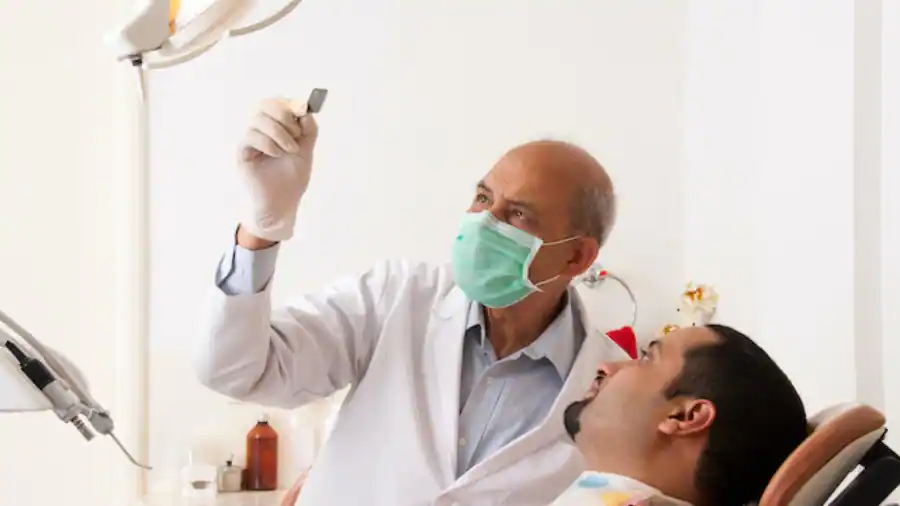Good oral health is a combination of our dental hygiene routines and genetics. But if you rely on your parents’ naturally healthy genes to keep your teeth in tip-top shape, time will slowly disappoint you.
The impact of not caring for your teeth and gums isn’t limited to your mouth. Poor dental care eventually leads to tooth decay, gum disease, and dangerous conditions like cardiovascular disorders and diabetes. Recent studies even link tooth decay to Alzheimer’s!
The safest way to step up your dental routine is to learn the dangers of not taking care of your teeth and gums. This short guide will walk you through the connection between your mouth and the rest of your body, and why taking care of one can help improve the health of the other.
1. Tooth Decay Spreads
If you’ve never had a chronic toothache, count yourself lucky. Research shows that toothache pain ranks right up there with backaches, earaches, and headaches and is one of the top 20 reasons people head to outpatient clinics for pain relief.
Tooth pain frequently stems from decay, although it can be a result of trauma or ongoing clenching and grinding (bruxism). But if you have decaying teeth, the problem doesn’t stop with the pain. If you don’t fix the source of the decay, excess bacteria head into your digestive and respiratory systems, where they thrive and cause disease.
Decay begins in your tooth, slowly eroding the soft and hard tissues that protect the nerves and pulp. If the decay makes it that far, it turns into an infection that spreads down the tooth’s roots. At the end of the root, a small pus pocket, called an abscess, forms.
Abscesses push against your jawbone nerves and cause serious pain. Worse, if the pus pocket ruptures, the infection can spread to other parts of the face and jaw. The bacteria released into your bloodstream may cause sepsis, a potentially fatal form of blood poisoning that damages important organs, including the heart, kidneys, and lungs.
All of those problems stem from one uncared-for cavity. If you start to feel the throb that indicates a tooth issue or see other symptoms, take care of it early.
2. Gum Disease Could Cause Decreased Health
Early gum disease is called gingivitis. In those first stages, gingivitis is reversible. But if it’s not treated, it turns into periodontitis, a disease that causes receding gums, tooth loss, and eventual jaw bone loss.
We know periodontitis is seriously damaging to the mouth. Yet, further research shows that it also has devastating effects on the rest of the body. Chronic periodontitis can lead to health conditions such as:
- Cardiovascular disease is a form of heart disease that could stem from the inflammation and infections caused by oral bacteria in the respiratory system.
- Endocarditis is another heart disease that occurs when the inner linings of the heart chambers or valves get infected. This area is called the endocardium, and infection happens when bacteria and germs spread into the bloodstream and attach to those areas in the heart.
- Diabetes is a disease that reduces your body’s ability to fight infection. Gum disease is frequently seen in patients with diabetes.
- Pneumonia and other respiratory diseases occur when bacteria enter the lungs.
If you’re pregnant, poor dental care and periodontitis can lead to premature birth or low birth weight.
3. Tooth Loss May Cause Cognitive Decline
Keeping your mental health sharp could start with your toothbrush.
A recent study connected tooth loss in aging people and Alzheimer’s Disease or vascular dementia. Because lost teeth speed up nerve damage and neurodegeneration, the theory is that if you’ve had your teeth pulled because of trauma or decay, you could be at higher risk for cognitive decline.
The risk increases with every tooth you’ve lost. Yet, most of us don’t realize the significance of our dental health while we’re young, and by the time we do, the damage is often done.
The sooner you start with a high-quality dental routine, the more likely you are to save your teeth and protect your brain from cognitive decline as you age.
Conclusion
The effects of poor dental care spread far beyond the mouth. Your body feels the consequences when bacteria and infection get into the bloodstream and damage your organs. Your brain health decreases with thriving bacteria and tooth loss.
All of these problems are avoidable with daily brushing and flossing and regular dental cleanings and exams. If you think they’re a hassle now, imagine the interruption in your routine that those diseases could cause. Now that you know the possible effects, you’ll be more likely to boost your dental hygiene habits.




Be First to Comment